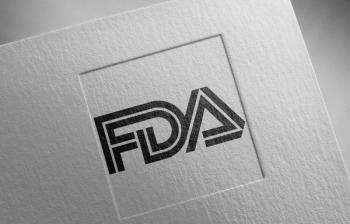
Evolution of Pharmacist Role in Treatment and Management of Breast Cancer
Dr Vinokurov illustrates the evolving role of pharmacists in HR+/HER2- breast cancer treatment.
Episodes in this series

Alisa Vinokurov, PharmD: The role of pharmacists has evolved within the last couple of years, specifically in niche fields, such as oncology. We’re no longer sitting in the basement of hospitals or closed off without any windows only verifying orders. We work closely with the infusion center pharmacists, but in this specialized role as clinical oncology pharmacists, we more so work interdisciplinarily with nurses, nurse practitioners, PAs [physician assistants], and doctors. We’re in the clinic seeing the patients, working with all these team members on 1 goal, for the patient.
As pharmacists, we’re entering the chemotherapy orders. Dr McHayleh will see a patient, walk by the office, tell us this patient is starting on Kadcyla, Enhertu, or whatever it may be, and we’ll enter those orders. We know the doses. We’re the medication experts, so we put everything through—all the premedications and everything that needs to be fulfilled with the chemotherapy regimen itself. We’re entering that into the patient chart and then sending it to the oncologist to sign off on.
With patients, we do the initial patient education. We give them printouts, including all the OTC [over-the-counter] medications we recommend for patients who are about to endure chemotherapy regimens. We go through the big picture of how chemotherapy works from start to finish. We get down to the nitty-gritty of mechanisms of action if we need to, but we give the patient a holistic view of what they’re about to go through.
In terms of the detective work that we do as pharmacists, that’s something we do in general, no matter what field we’re in. We’re very detail oriented and we make sure we catch those little things that some nurses might not think of. The oncologists are so busy, so we’re filling in those little holes that may be missed. For example, Dr McHayleh orders echocardiograms every 3 months. We make sure that if it’s coming up on that 3-month mark, we have to let the nurse or whoever know to order the next echocardiogram. [We pay attention to] recent laboratory values for any renal or liver adjustments that need to be made, or neutropenia. We definitely keep track of those things, trends of the patients we see coming into the clinic, and manage them as they come through.
We’re typically the first contact on the day of treatment. In our practice, the clinic is on the second floor of our building, and the infusion center is on the third floor. We’re the first point of contact for the APPs [advanced practice providers] who are upstairs. They’ll contact me. If it’s something simple like neutropenia or elevated liver enzymes, they’ll contact me, make sure the drug doesn’t require any adjustments, and then move on. But if something big comes up, we refer to the oncologist to make the final decision on the holistic view of how the patient is doing. For those things, we refer to Dr McHayleh or whichever oncologist we’re working with.
Transcript edited for clarity.
Newsletter
Stay informed on drug updates, treatment guidelines, and pharmacy practice trends—subscribe to Pharmacy Times for weekly clinical insights.



























